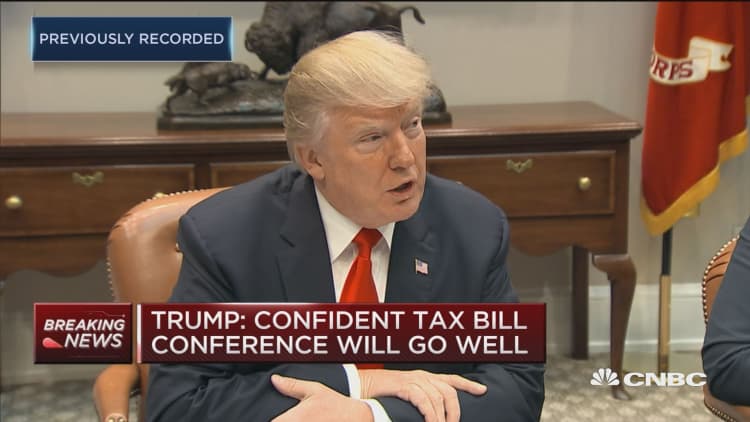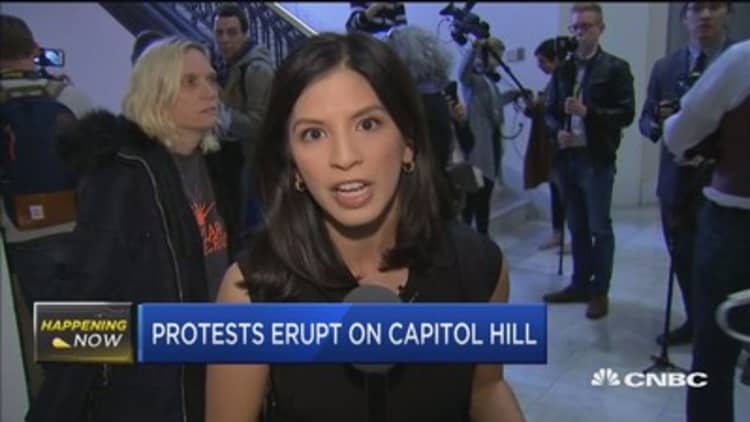
The way President Donald Trump sees it, Americans are ecstatic about the Republican tax plans.
"I view it more than anything else as it's a tremendous bill for jobs and for the middle class," the president told reporters at the White House on Tuesday. "And I think people see that and they're seeing it more and more, and the more they learn about it, the more popular it becomes. And I think the end result will be even better."
Public opinion polls give little support for Trump's beliefs about the tax overhaul. While at least one recent survey has shown a slight improvement in the plan's approval rating, it remains deeply unpopular as the House and Senate move closer to passing a joint bill.
On Friday and Saturday — when significant media attention focused on the Senate's rush to pass its tax bill — only 29 percent of American adults polled by Gallup approved of the proposed tax changes. Fifty-six percent disapproved, while 16 percent had no opinion. Seventy percent of Republicans backed the plan, compared with only 25 percent of independents and 7 percent of Democrats.
An identical 29 percent of voters polled by Quinnipiac University from Nov. 29 to Monday said they backed the tax proposals. Fifty-three percent disapproved. That marked a slight increase in support from November, when 25 percent of voters approved and 52 percent disapproved in a Quinnipiac poll.
Two other recent polls have not shown strong backing for the tax plans. Only 29 percent of Americans responding to a Reuters/Ipsos poll in late November supported the proposals, while 49 percent opposed them.
The GOP proposals had an even approval and disapproval at 36 percent in a Politico/Morning Consult poll in late November.
Voters are also not buying the Republican argument that their plans primarily help the middle class. Sixty-one percent of respondents to the most recent Quinnipiac poll said the plan favors the rich at the expense of the middle class.
Republicans contend that their proposals — which would chop the corporate tax rate, at least temporarily trim individual rates and change or scrap numerous deductions — will spark business investment and boost job creation and wages.
House and Senate Republicans are poised to form a conference committee to hash out differences in the separate, but largely overlapping, bills they passed. If they can strike a deal on a final plan and pass it, they can send the proposal to Trump to sign into law.
The GOP hopes to approve a plan by Christmas.
WATCH: Protests erupt on Capitol Hill over tax bill



